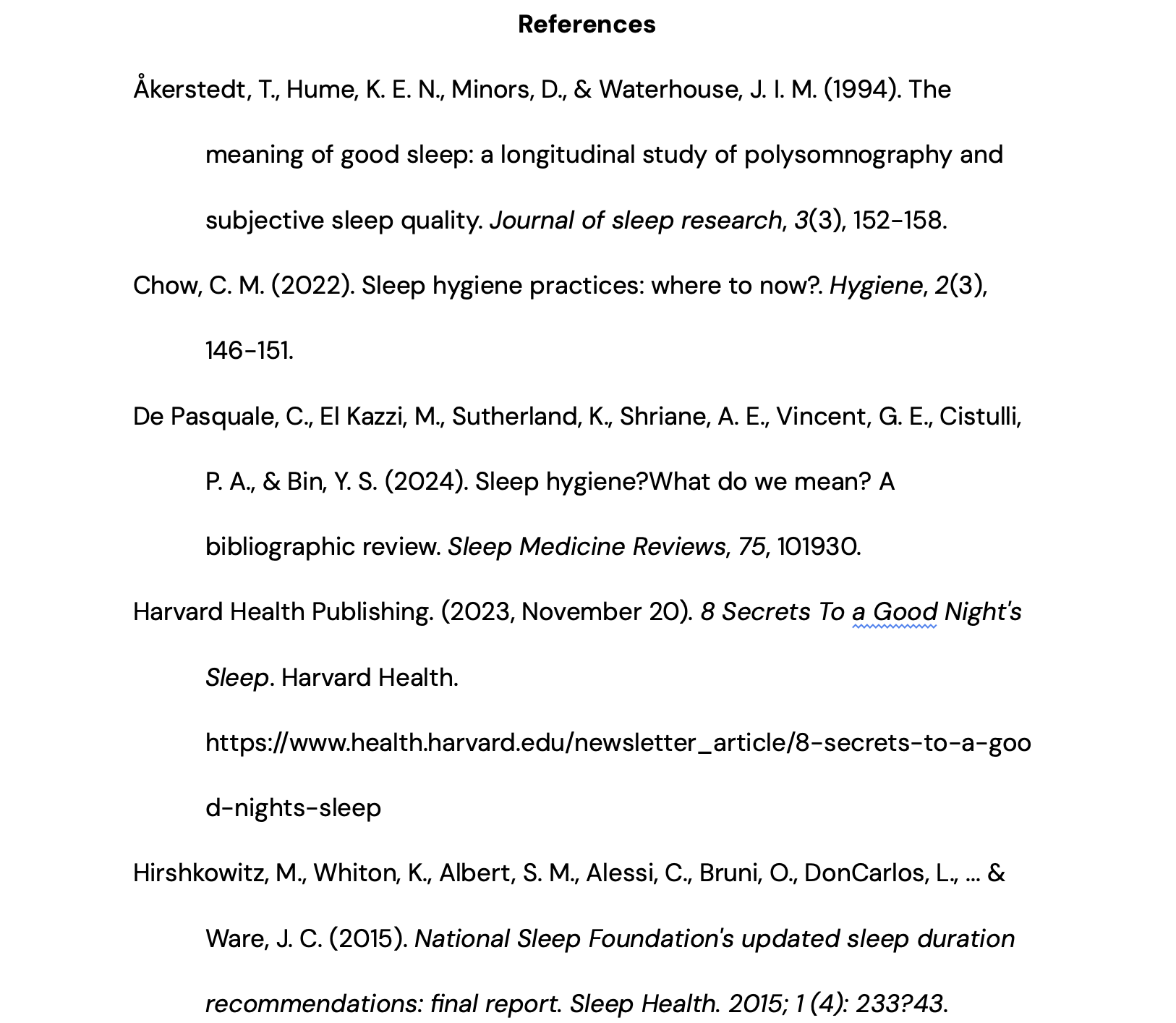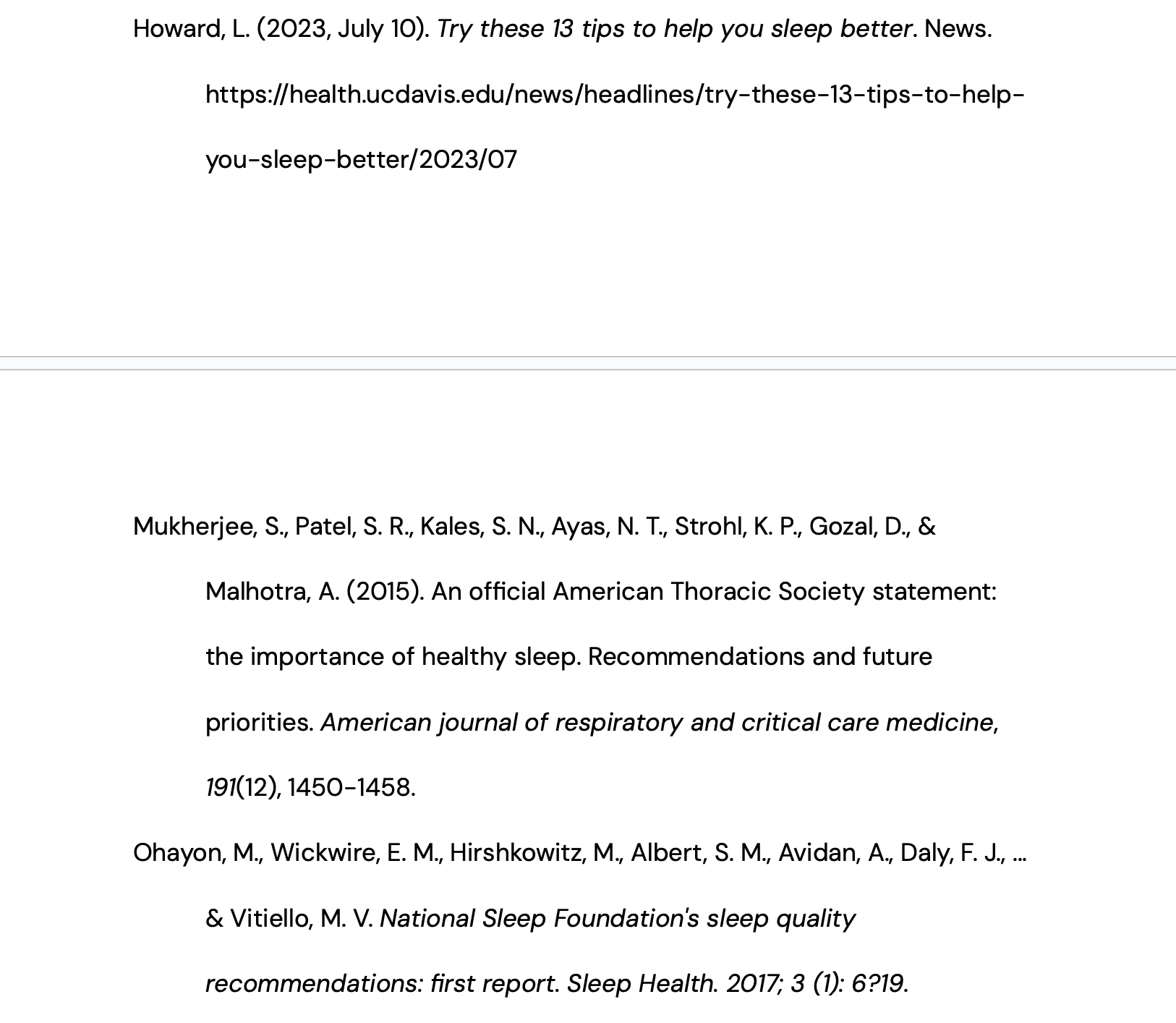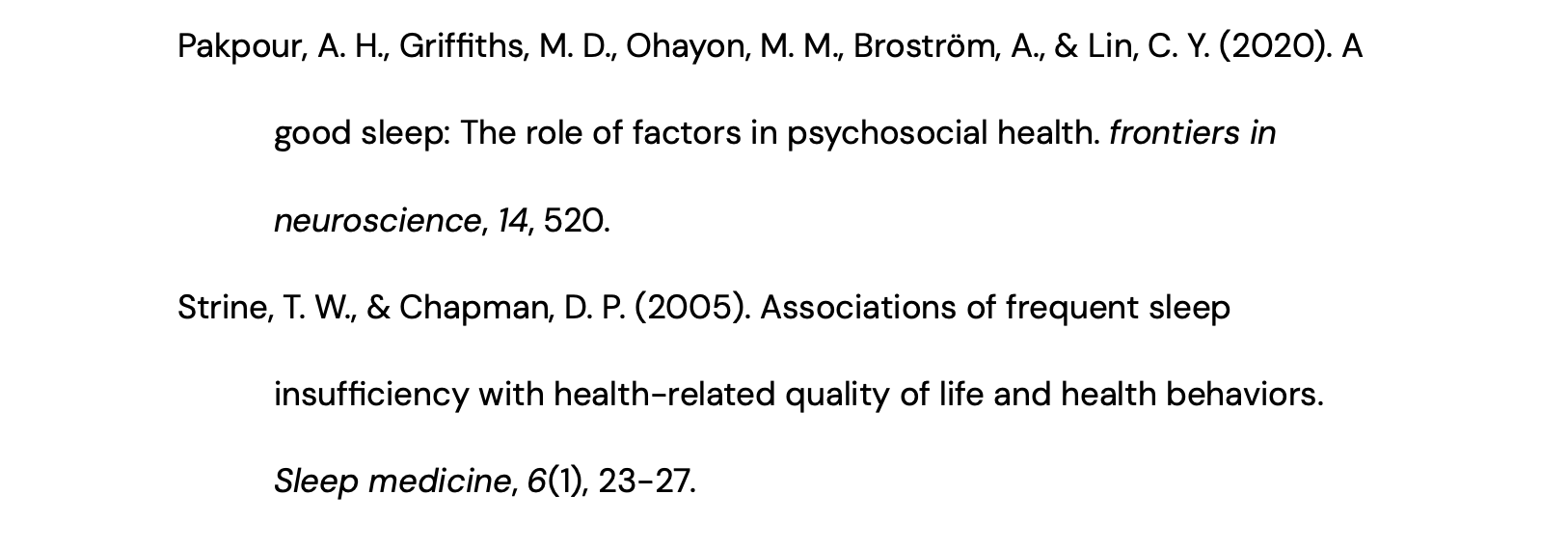How To Get High Quality Sleep
Abstract
Many individuals in this day and age struggle with getting an adequate amount of good sleep. Sleep simply hasn’t been prioritized enough in modern life. However, getting high quality sleep is vital to our health, and researchers are delving into the world of sleep to help people maximize rest. High quality sleep is often efficient and leaves people feeling very refreshed, with ample time spent in deep sleep and few arousals. There are a number of simple behavioural and environmental changes that people can make to ensure they are getting optimal sleep. Many of these changes are adaptable to different lifestyles, and can be implemented to each individual’s discretion. The effects of getting proper rest are noticeable, with mental and physical benefits arising. The simplicity of these sleep hygiene practices, combined with their undeniable efficacy, makes it clear that more awareness and attention must be given to sleep science and medicine.
Introduction: Sleep Quality Currently
Sleep, like food, water, and exercise, is one of the foundational pillars of human health. Unfortunately, modern society consistently neglects adequate sleep, with between 50 and 70 million Americans facing sleep-related issues and 40% getting less than 8 hours a night, leading ⅜ to face consequences due to inadequate rest (Strine and Chapman, 2004). In fact, sleep-related issues have similar prevalence as more widely recognized conditions, such as arthritis and cardiovascular disease (Strine and Chapman, 2004). This is largely due to habits that many people slip into that are actually detrimental to sleep quality, such as “drinking too much coffee or alcohol or doing less exercise” (Chow, 2022). Studies from Hong Kong and Taiwan show that even children and adolescents have degraded sleep quality due to reasons such as television exposure and substance abuse (Pakpour et al., 2020). The tragic effects of this global sleep concern are undeniable. Unfortunately, almost two-thirds of adults report that a physician has never inquired about their sleep health (Strine and Chapman, 2004). Thankfully, in recent years, sleep has become a more prominent discussion topic in the health field, leading to new breakthroughs in sleep medicine.
What Does High Quality Sleep Look Like?
Before getting into proper sleep habits, it’s important to understand what health experts consider to be a “good night’s sleep.” Some of the commonly measured variables include “sleep latency, number of awakenings, time awake, and amount of Stage 1 sleep” (Akerstedt et al., 1994). Healthy sleep also generally aligns with the body’s circadian rhythm, or natural physiological clock (Mukherjee, 2015).
Slow-wave sleep (aka deep sleep/stage 3 sleep) leads people to perceive their sleep as being deeper in quality (Akerstedt et al., 1994). Rapid-eye movement (REM) sleep - a sleep stage characterized by increased brain activity and vivid dreams - latency has similar effects, and also causes people to feel more alert in the morning (Akerstedt et al., 1994).
It’s important to understand what an ideal night’s sleep should look like. First and foremost, the duration should be within the scientifically recommended range, which an article from the Journal of the National Sleep Foundation states is between 7-9 hours for adults (Hirshkowitz et al., 2015). Moreover, studies have shown that the biggest indicator of subjective sleep quality is sleep efficiency, defined as how much time you spend asleep relative to the amount of time spent in bed (Akerstedt et al., 1994). In other words, it is the speed with which one can fall asleep. And, most importantly, good sleep should leave one feeling refreshed and rejuvenated. Enforcing sleep practices that maximize quality of rest is known as “sleep hygiene” (Pasquale et al., 2024;Chow, 2022). These can include changes in an environment, behavior, or other variable factors.
Tips on Getting Good Rest
Thankfully, modern research has allowed health experts to curate targeted approaches to improving sleep quality and duration. The first one is fairly intuitive, but often disregarded: only sleep when genuinely tired (Howard, 2023). This helps regulate when we sleep and ensures that we minimize time we spend awake in bed. Additionally, it’s helpful to mitigate stressful emotions, as they can trigger certain hormones (like adrenaline) that make falling asleep difficult. This can be done through a variety of simple practices, such as breathing exercises and relaxation/mindfulness practices ("8 secrets", 2023).
In terms of eating, it’s best to avoid sleeping while hungry, though being too full can also make it hard to fall asleep (Howard, 2023). Exercising regularly is another effective intervention that makes the body naturally tired, though it is best to do it in the morning or afternoon rather than near bedtime (Pasquale et al., 2024).
Additionally, it’s essential to create the proper sleep environment. This means making it comfortable, removing distractions, and keeping it dark, quiet, and temperature regulated ("8 secrets", 2023;Chow, 2022). Limiting screen time before bed is important, since devices can be overstimulating and have shown to decrease sleep duration and efficiency (Chow, 2022). Further, it’s essential to use the sleep environment primarily for actually sleeping, rather than working, watching television, etc. This helps the brain associate the environment with rest so it becomes easier to fall asleep once in that area ("8 secrets", 2023).
Avoiding toxin ingestion near bedtime is also important. Specifically, smoking has shown to negatively impact sleep, with smokers reporting that they have a harder time falling/staying asleep, and feel tired throughout the day more frequently than their non-smoking counterparts (Strine and Chapman, 2004). Similarly, caffeine consumption - which is physiologically stimulating - should be reduced near bedtime (Pasquale et al., 2024). Lastly, in order to measure sleep quality, many individuals have turned to sleep tracking devices, which are useful in measuring both sleep quantity and quality (Ohayon et al., 2017).
Benefits of High Quality Sleep
Implementing these tips on getting better sleep can provide a plethora of positive effects. For example, a good night’s rest has shown to improve brain health, including mental health, cognitive functioning, and emotional processing (Pakpour et al., 2020). This can have effects such as improved academic performance and alertness, the latter of which is particularly important considering how many car accidents occur due to impaired alertness from sleep deprivation (Hirshkowitz et al., 2015).
Good sleep can also aid memory and learning, as well as physical attributes such as recovery efficiency, energy levels, “cardiovascular and metabolic function, and cellular toxin removal” (Mukherjee, 2015). Importantly, getting better rest reduces one’s risk of developing psychiatric illnesses, and helps mitigate the impacts of chronic illness (Strine and Chapman, 2004). Overall, it’s evident that getting proper rest is a crucial component to general physiological wellbeing.
Conclusion
In a busy, ever-innovating world, rekindling our relationship with sleep is of the utmost importance. In order to do so, both sleep duration and sleep quality must be addressed, with individuals actively identifying factors that harm and contribute to their subjective sleep quality. If targeted practices are implemented to maximize sleep quality, real physiological benefits are inevitable.


